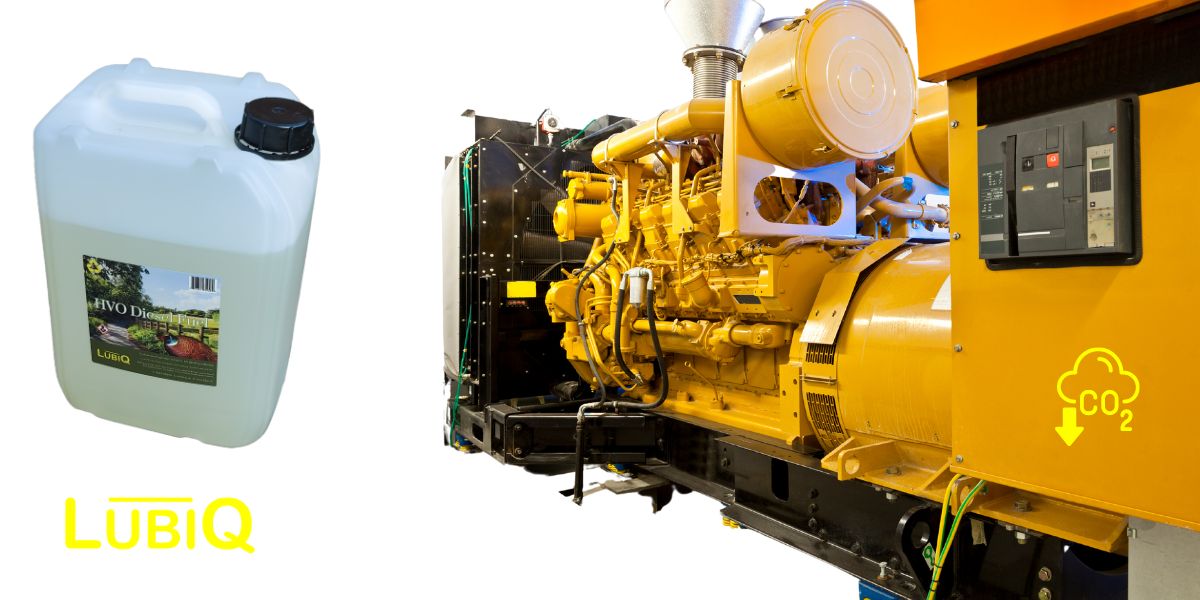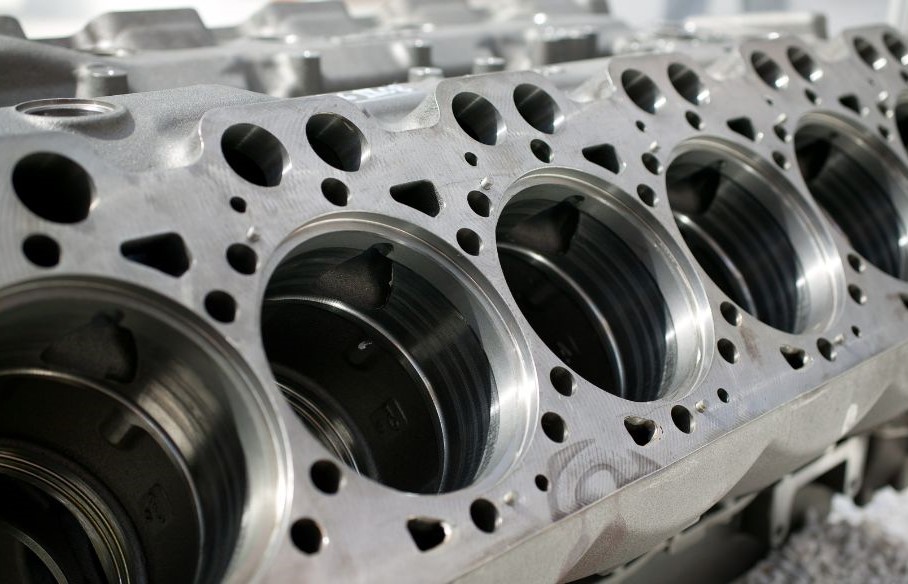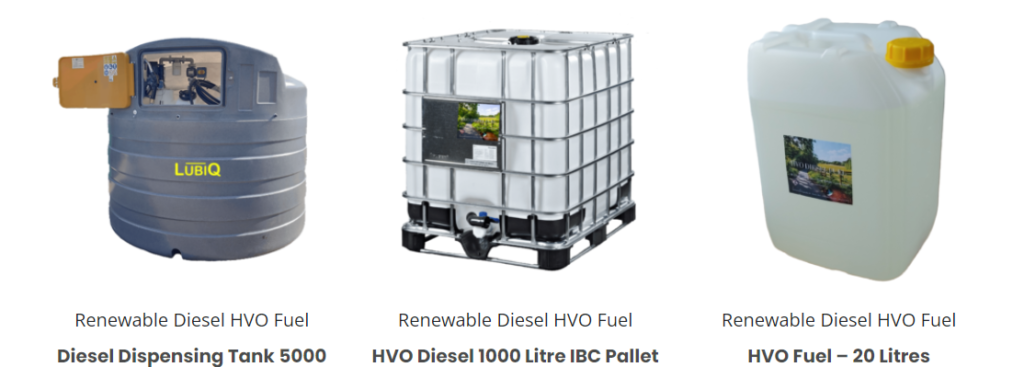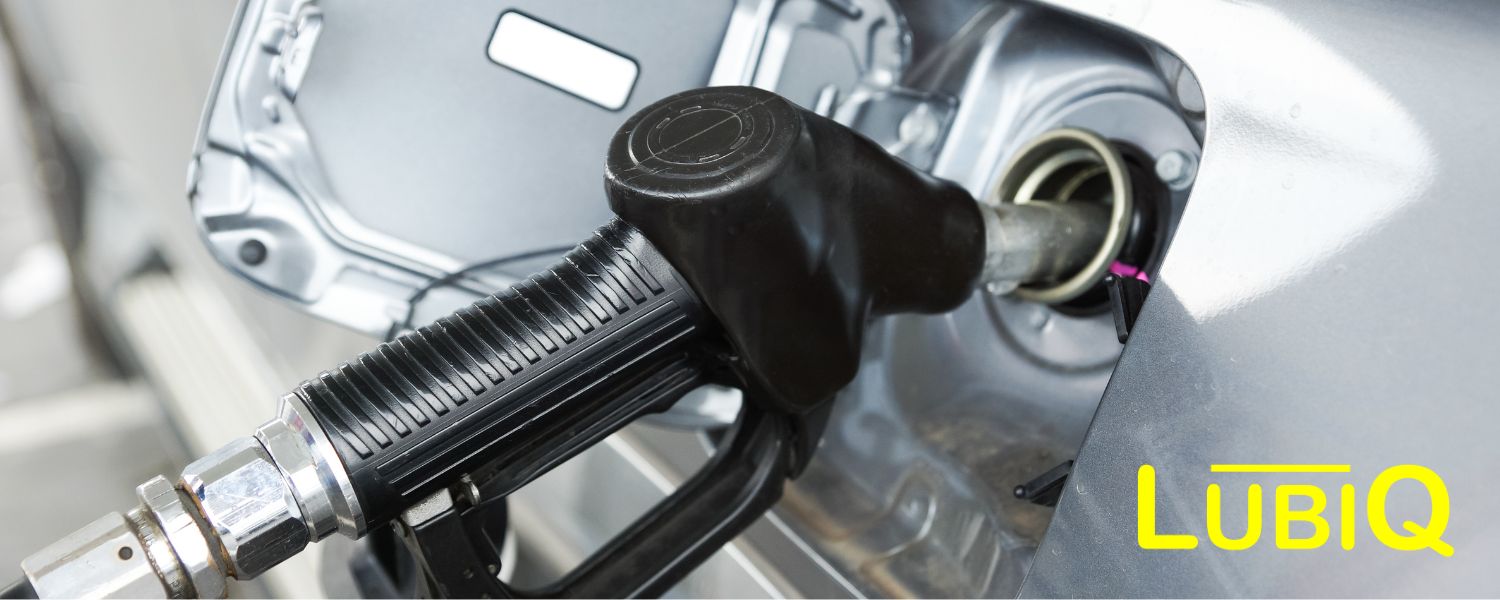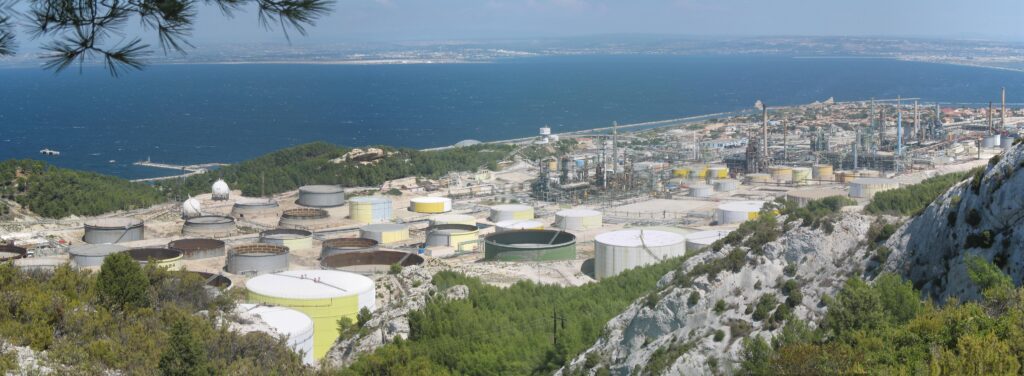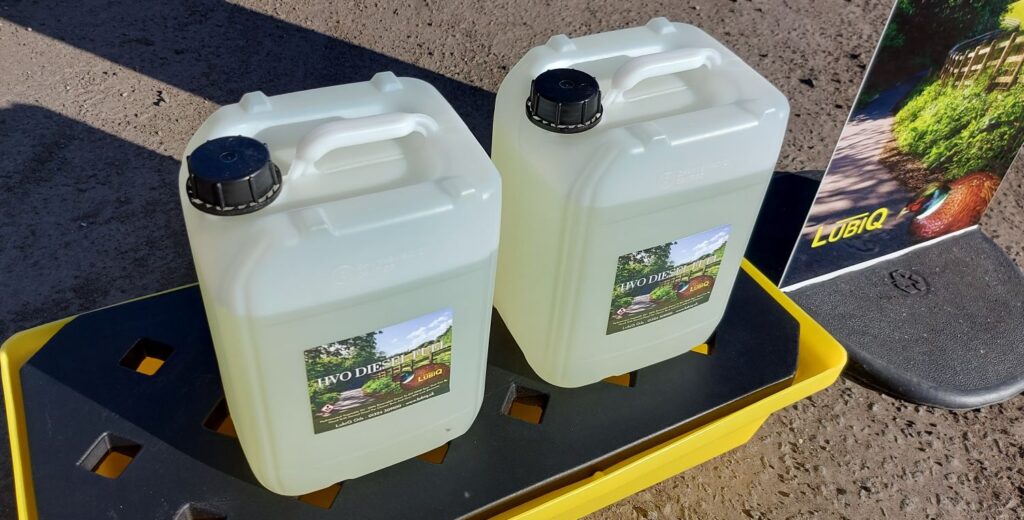What Is HVO Fuel?
The letters HVO stand for hydrotreated vegetable oil which is a paraffinic fuel also called renewable diesel. It is a fossil-free replacement for mineral diesel that is produced from UCO and other wastes and residues offering a net reduction in green house gas emissions of up to 90%.
Part of a group of synthetic fuels produced from waste like used cooking oils, tallow, pitch, fish waste, and animal fats, HVO fuel is made by cracking and hydrogenating with hydrogen to produce a paraffinic kerosene-like fuel with low odour and very little sulphur content. As it has a high cetane rating and burns cleanly, HVO produces between 40 and 80% less particulate matter emissions (soot and smoke).

Supply Is Growing
The Finnish oil firm Neste has been a pioneering manufacturer of hydrotreated vegetable oil which is also called renewable diesel in recent years in Finland, Holland, and Singapore, and the market is now expanding with majors like Phillips 66, Valero (Diamond Green Diesel), Total, Marathon Oil, and Eni also ramping up production around the world.
HVO is chemically very similar to fossil diesel and typically has lubricity additives added to make up for missing sulphur, it is a pale straw colour with a high cetane number of 70.
The specification for synthetic paraffinic diesel fuels like GTL and HVO is EN15940 directive 2009/30/EC Annex II – you can downloard our Zemo Partnership certificate declaration number: EF / 140067786 / ESL079449
Air Pollution Down, Smooth Acceleration Up
Because it is a synthetic fuel, the molecule lengths in HVO are very consistent so it burns very cleanly, reducing diesel particulate matter by 80% according to MTU a Rolls-Royce company.
Particularly in manual gearbox smaller cars and vans you can feel notably smoother and more eager power when running on HVO.
Is HVO A Biodiesel?
Yes, it is, but it absolutely is not a B100 or FAME (fatty acid methyl ester) biodiesel product and suffers from none of the very painful shortcomings of these products. HVO is much more compatible with modern common rail engines and far more stable in storage; problems with diesel particulate filters will reduce dramatically.
Consistent, high purity, and very stable, HVO fuel can be used in temperatures as low as minus 20 and, because there is no oxygen within the fuel, it will not grow algae in storage. You can store HVO fuel for as long as 10 years and it has excellent cold weather performance.
Can You Mix HVO And Diesel?
Yes, you can and in any proportion. This makes HVO very practical as bulk fuelling infrastructure or vehicles need no changing and if you need to you can fill up with either mineral or HVO according to forecourt availability at locations on your route.
What Is Availability Of HVO Fuel Like?
A handful of forecourts and increasing number of truckstops in the UK currently sell HVO fuel; this is set to expand to 50 sites soon, if you have a UK Fuels card you can check out where to buy here.
LubiQ deliver HVO fuel all over the country in jerrycans, pallets, or bulk drops of 500 to 36,000 litres or more.
There are millions of litres of HVO fuel for cars stocked in the UK and dozens of truck fleets have used it for years. It has been approved by major OEMs like Volvo, mtu, CAT, Cummins, DAF, Audi, Peugeot, Citroen, and Scania to name just a few. A video at the bottom of the page shows how cleanly HVO burns.
I hope we have clarified a few points about what HVO fuel is in this article. Some further points of interest to note are that:
- Engines heat from cold quickly making it good for standby generators and winter use.
- Fuel economy drops a little for long journeys and rises a little around town.
- HVO is low density and light weight, about 25% lighter than water per litre.
- HVO does have some odour but significantly less aromatics than mineral fossil diesel.
- The symbol XTL on your fuel flap means the vehicle is ready for synthetic diesels like HVO or GTL (means gas-to-liquid). Both are excellent fuels but HVO is fossil-free.
